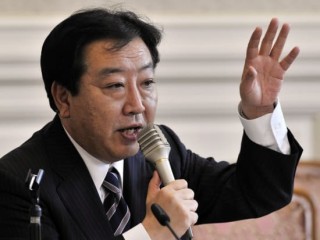 The surprise election of a ‘second tier’ candidate as Japan’s new Prime Minister-elect has analysts scrambling to try to define the implications for agricultural trade generally, and imported Australian beef in particular.
The surprise election of a ‘second tier’ candidate as Japan’s new Prime Minister-elect has analysts scrambling to try to define the implications for agricultural trade generally, and imported Australian beef in particular.
While all the bets were on candidacy front-runners Maehara San and Kaieda San, lower profile Finance Minister Yoshihiko Noda came through yesterday’s elections to clinch the leadership of the Democratic Party of Japan.
That pre-ordains him to take over as Prime Minister in coming days.
As is the custom in Japan, Prime Ministers turn over at a rapid rate, and 54-year-old Noda San will be the nation’s sixth in five years. He succeeds Naoto Kan, who resigned after 15 months in office, recently plagued by public discontent over political infighting and his administration’s handling of Japan’s March natural disasters.
Little is known about Noda San’s stance on trade although he is believed to be a pragmatist, suggesting he may be receptive to strategies that provide stimulus to the flagging Japanese economy.
In one of his early statements reported in the Yomiuri Shimbun newspaper yesterday, he said it was “important to revive Japan's economy by benefiting from the vibrancy of the Asia-Pacific region.”
Noda San is known to favour a rise in Japan’s controversial and widely debated consumption tax. Given his previous position as finance minister, observers expect him to continue with strong fiscal-approach to Japan’s economic malaise, including working closely with the Bank of Japan to provide further intervention in the currency to prevent a high yen.
As prime minister he will have to broaden his scope to deal with the continuing reconstruction from the March 11 quake and tsunami along Japan’s northeastern coast and the 100,000 people who remain dislocated because of radiation leaking from a tsunami-damaged nuclear plant.
“Let us sweat together for the sake of the people,” he said after the vote. “This is my heartfelt wish.”
Noda San must also deal with a divided parliament, which continues to face gridlock, after the opposition won control of the upper house last northern hemisphere summer.
He is the third Democratic party leader since the party surged to a landslide victory two years ago, dumping the long-ruling conservatives, amid widespread hope for change.
The Democratic Party has some political connections with Japan’s strong farmer lobby, but it remains unclear whether this is likely to influence Australia’s progress towards the establishment of a Free Trade Agreement with Japan, where agricultural protection is shaping up as a key area.



HAVE YOUR SAY